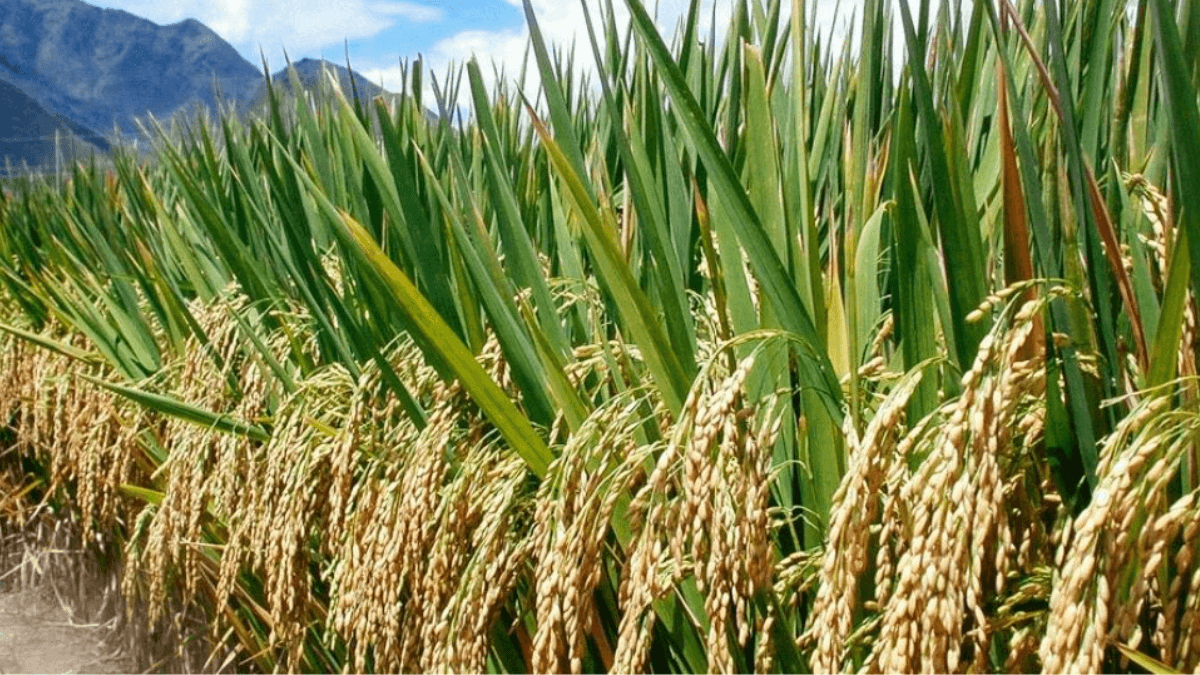News in brief:
– Ogun State has launched a 200-hectare rice farm, marking its entry into major rice-producing regions, with potential revenue of ₦3 billion annually.
– The project, supported by the World Bank, aims to boost local economies and food security through modern farming practices and significant job creation.
Ogun State, Nigeria, has recently joined the ranks of major rice-producing states in the country. This milestone was marked by the official launch of the harvest from a significant 200-hectare rice plantation at Magboro Rice Farm in the Obafemi-Owode Local Government Area.
The farm is part of the Ogun State Economic Transformation Project (OGSTEP), which is supported by the World Bank. This initiative is designed to boost economic growth and agricultural development in Ogun State.
Key Details:
- Farm Size: 200 hectares
- Start Date: Planting began in May, with the harvest occurring just three months later.
- Harvest Yield: Each hectare produced 7 metric tons of rice, totaling 1,400 metric tons for the entire 200-hectare area.
Economic and social impact of this project
Governor Dapo Abiodun emphasised the importance of this project in boosting local economies and creating job opportunities. The farm has already demonstrated impressive results:
- Revenue Generation: The 200-hectare farm is expected to generate about 20,000 bags of milled rice per cycle, with an estimated value of ₦1 billion (approximately $1.3 million). If this cycle is repeated three times a year, it could bring in ₦3 billion (about $3.9 million).
- Employment: The project involves 200 farmers, mainly women and youths from across Nigeria.
Governor Abiodun is optimistic about expanding this project from 200 hectares to 2,000 hectares, potentially increasing revenue to ₦30 billion (about $39 million) and reinforcing Ogun State’s role as a key player in national food security.
Advanced agricultural practices
The OGSTEP project not only focuses on increasing rice production but also on enhancing farming practices through modern techniques. Key components include:
- Quality Seeds and Irrigation: Farmers receive access to high-quality seeds and modern irrigation systems.
- Technical Training: Comprehensive training is provided to improve farming methods.
- Subsidized Mechanisation: Farmers benefit from a 65% discount on mechanisation services.
In addition to these advancements, the project will incorporate solar-powered pumps and modern drones for pest control to further optimise farming efficiency.
Support and prospects
The Commissioner for Agriculture and Food Security, Hon. Bolu Owotomo, highlighted that this project aligns with the state’s agricultural policy aimed at achieving food sufficiency. Similarly, Economic Adviser and Commissioner for Finance, Mr. Dapo Okubadejo, praised the initiative’s potential to boost local food production.
The Project Coordinator, Mrs. Mosun Owo-Odunsi, expressed gratitude for the support received and highlighted the project’s positive impact on the community. The area’s traditional leader, the Olu of Magboro, Oba Modiu Alalade, also acknowledged the significant benefits to local farmers and the potential for expanding agricultural activities.
Ogun State’s new rice plantation represents a significant advancement in Nigeria’s agricultural sector. By integrating modern techniques and expanding production, this project is set to make a substantial impact on both local and national levels.



